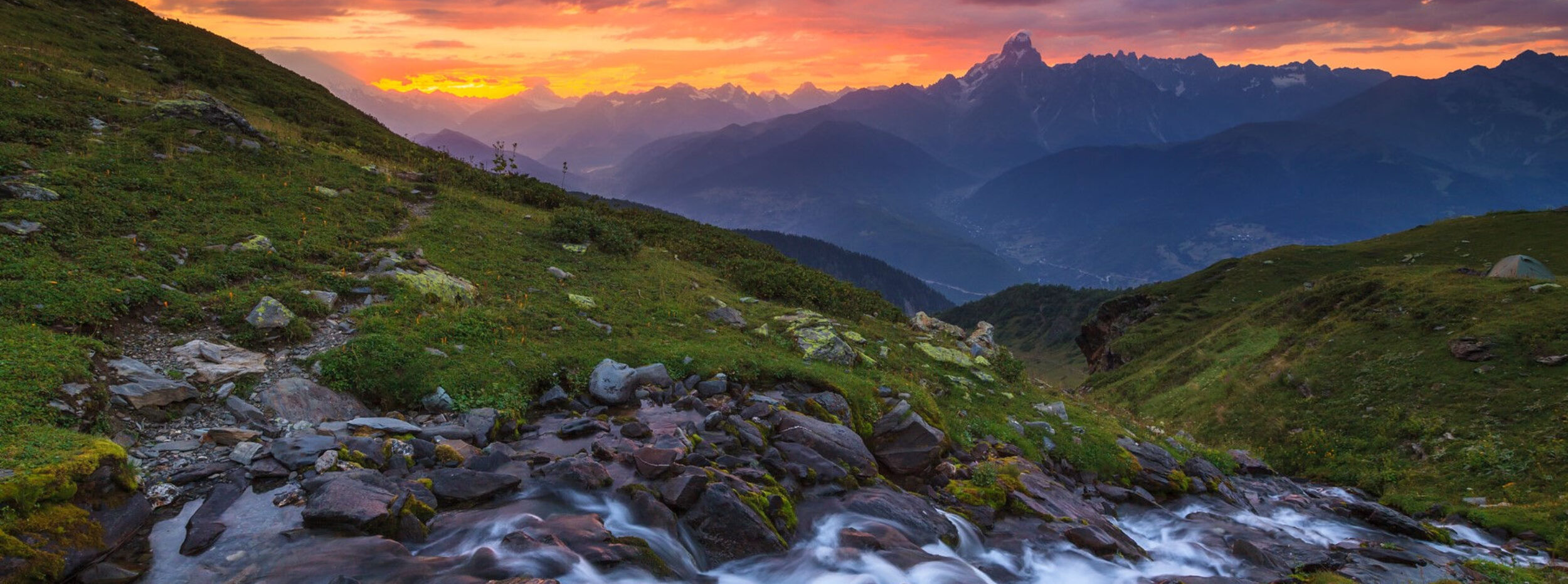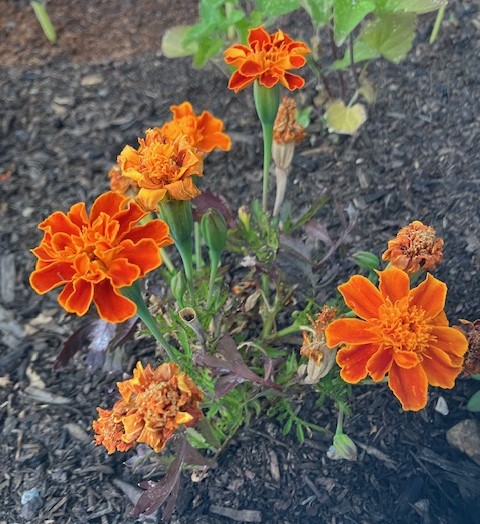Limitations define what we are, and if we need to become something else we must pass through them by growing in the direction of love.
Want me to read you this article during your next workout or commute? Click the link at the top of the post on my website!
I came across an article on the “upper limit problem” recently. If that’s a new term for you, my best understanding is that it relates to the way we self-sabotage our success, growth, and happiness because our suffering and dysfunction are more familiar to us. Whenever we reach the boundaries of our comfort zone, we reflexively constrict and this keeps us stuck in old patterns that don’t serve us.
This isn’t an unfamiliar concept for me, but it’s one that’s remained uncomfortable. It seems to imply that what holds us back are merely our own beliefs and that external constraints such as limited finances, health, education, and social networks or obligations to ourselves, family and community are not valid. It reeks of privilege, echoing the oppressive sentiment that if you just work hard enough and believe in yourself fully, anything is possible. It isn’t. We don’t exist in a vacuum. Our physical bodies still need food and rest, our cultures form structures we must manifest within, and who we are and what we become is the result of a complex network of interactions that stretch far beyond our individual will.
I’ve been taken right into this zone recently by my recovery work dovetailing preparation for a medicine journey. Working with plant medicine is all about participating in the evolution of humanity by dissolving old patterns and “leveling up” our bodies and psyches. While part of me loves the idea of suffering less, allowing and welcoming such a significant transition takes me to the place of asking if I think it’s possible and what might be at stake if it were. It takes me to my “upper limit” – that part of me that’s really not on board with profound change and might derail the process with powerful roadblocks. The question I ask myself is, “Why does this resistance exist?”
The first answer that arises is that dramatic changes have often triggered physical and emotional instability for me – illness that limits my participation in life and anxiety that leaves me desperate for comfort and control anywhere I can find it – or imagine it. I’ve worked hard for years to be in a place of enough stability and security to feel genuinely engaged, curious, and joyful, and I don’t want to put that at risk.
A lot of what’s gotten me to this place is 12-step recovery, which I experience as being all about limits. It’s about limiting my exposure to things I’m addicted to, to stressful situations that put me at risk of seeking them out, and to things that distract me from my self-care routines. It’s about being honest about how I’m wired differently from other people in terms of the way I respond to stress and certain stimuli, and making choices with those limitations in mind. Some people can watch sexual movies, or go to cuddle parties, or have multiple partners and be just fine. I go into a fantasy world of craving that significantly compromises my capacity to deal with life.
Evolution, however, is all about breaking through limitations, adapting in such a way that something that might have killed us is no longer a threat and might even be our food. When the atmosphere of the primordial earth began filling with oxygen, most of the budding single-celled life on the planet died. One microbe learned to turn oxygen into fuel, gaining access to far more energy than its competitors and becoming the foundational building block of the vast majority of life currently existing on our planet.
Do limitations enable us to survive? Or do they prohibit us from thriving? Perhaps limitations simply define what we are. And that if we need to become something else – whether because circumstances require it or because we feel compelled by some inner longing – we must pass through them. Limitations represent a threshold between one thing and another, and in order to cross over, we must cease to be what we previously were.
Life does not evolve in a linear fashion. It lingers, as I do, on that threshold, dipping a toe in to acclimate. Buds expand and contract ever so slightly as they unfold. Fledglings teeter on the edge of the nest flapping their scrawny wings, backing away, and crying out. Life hesitates. It only emerges when it must. So it should come as no surprise that – given a choice – we opt out. Our job is to survive. But Life itself demands more of us. It wants to know what we’re really capable of so it can see itself in full glory.
This is where the article I read on Upper Limits surprised me. It suggested that what’s needed to pass through that perceived barrier is to “lose the conflict”. This approach acknowledges the tension inherent in any threshold – those twin pulls between comfort and curiosity, between what’s familiar and what’s possible, between what we prefer and what Life demands. And it invites us to let go; to stop fighting the conflict and accept that it’s there; to surrender and let Life have its way with us, because we are ultimately here to serve Its vision and It will always win out in the end – with or without us.
As a recovering addict, it’s important for me to add here that I don’t believe losing the conflict means doing whatever our instincts or impulses prod us to do in any given moment. Sliding into a stagnant cycle of self-indulgent destruction isn’t how Life evolves. Surrendering to Life’s invitation to explore and expand doesn’t mean an end to effort or honoring the limitations we need to stay physically, mentally, and emotionally fit and healthy. It means asking in each moment what we are acting, thinking, or behaving in service of. If we are aligned with what is loving for ourselves and those around us, that is the direction of growth. Sometimes that is a limitation, a negation, a rejection. Sometimes that is a tenderness, a permissiveness, an indulgence. What matters is surrendering to what’s required in the moment, and discerning what that is through an orientation towards our best understanding of love.
When we are asked to do what feels impossible, to be what we believe we can’t, to endure what feels unbearable, to give up what feels vital, to venture where we are certain danger lies, we can relax around the constriction, we can set aside all the thoughts of warning, and we can ask ourselves: Is this direction one of love? Does it bring more ease and abundance to my life or the lives of others? Am I hesitant because I think I don’t deserve it, can’t sustain it, will be overwhelmed by the energy of it?
It’s not about doing more things, doing different things, or even about doing things better. It’s about embodying a refined quality of being. It’s about letting Life expand our capacity to be with more – more contradiction, more messiness, more discomfort. And it’s about allowing ourselves be stretched into a shape that is more forgiving, more patient, more trusting, more compassionate because something within us wants to embody these qualities, and because we must in order to survive what we are all now facing.
We don’t really know what we’re capable of until we try. We don’t know what we can adapt within and around until we must. Stay alive. But know that Life will always be pulling you towards more. See if you can let yourself expand beyond the places you felt you could not go. And see if you might actually end up becoming an animal entirely different from the one you always believed yourself to be.
Nancy
Commentary on https://eliseloehnen.substack.com/p/do-you-have-an-upper-limit-problem
Discover more from InnerWoven
Subscribe to get the latest posts sent to your email.

